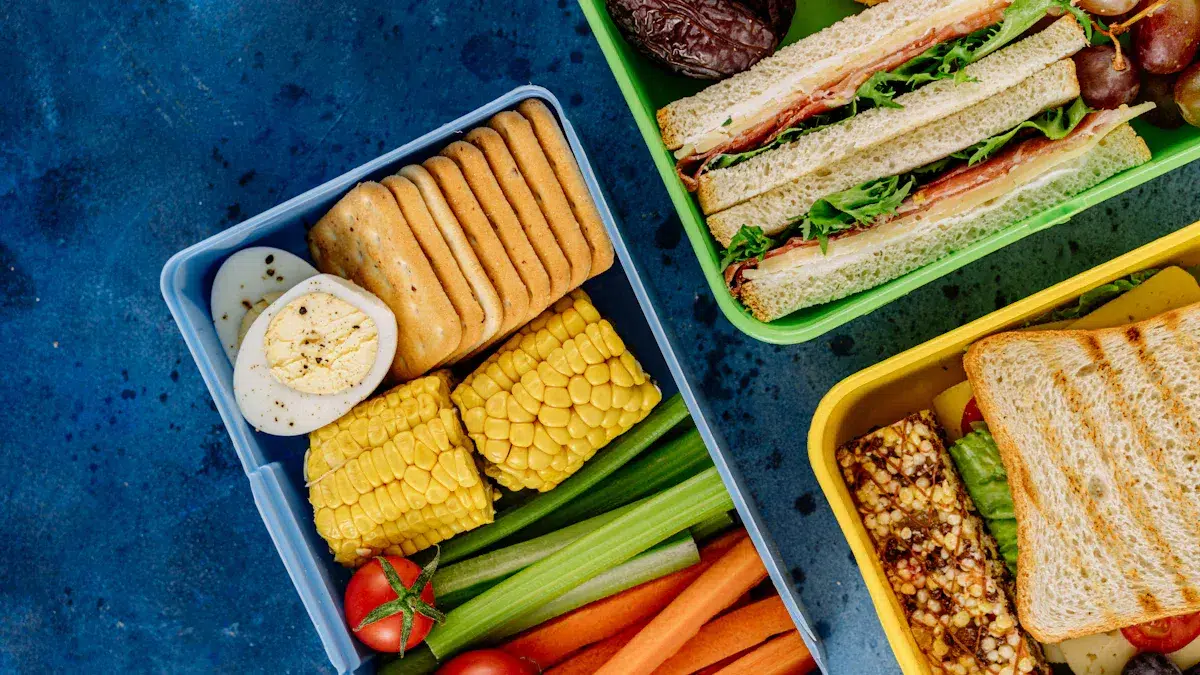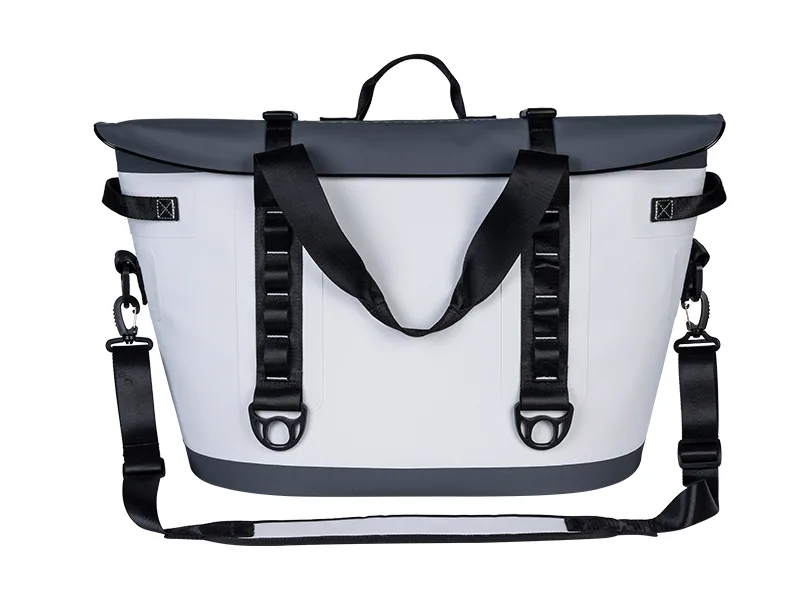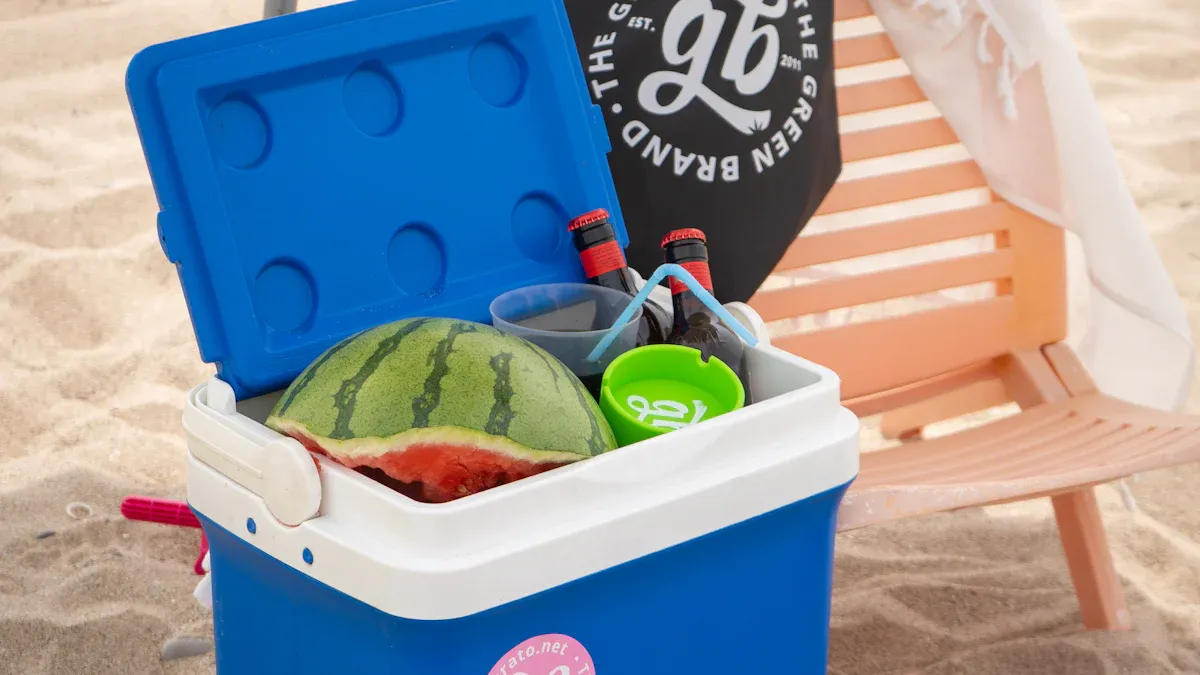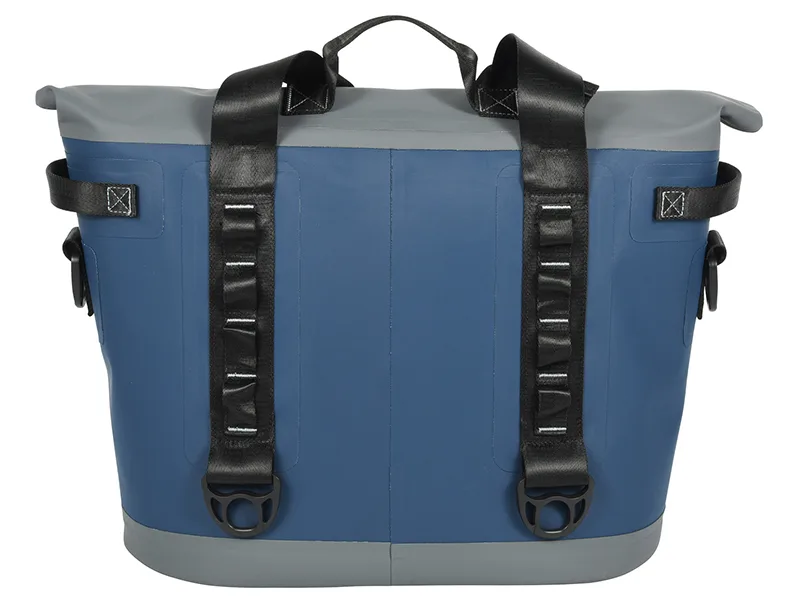
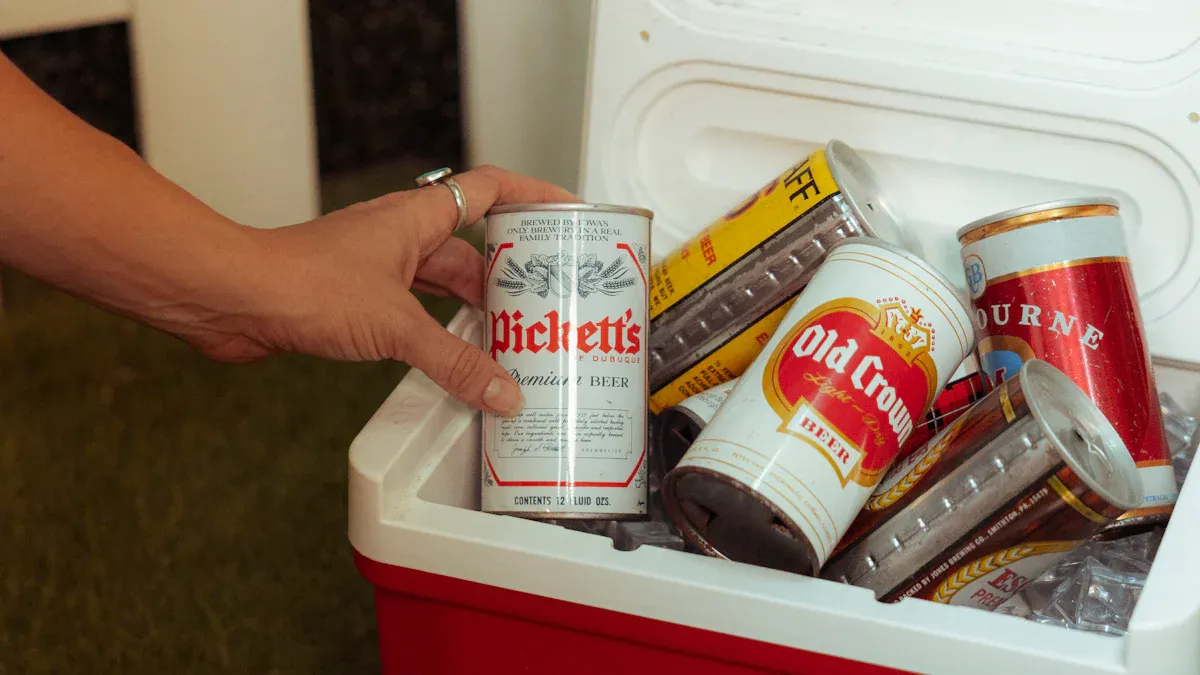
Choosing the best cooler depends on your needs. If you want long-lasting ice retention and durability for extended camping or hunting, a hard plastic cooler works best. If you value portability for short trips or picnics, a soft-sided cooler offers easy carrying.
Over 60% of outdoor enthusiasts prefer hard plastic coolers for their rugged build, while more than 55% of casual travelers select soft-sided coolers for convenience.
| Type | Best For | Key Benefit |
|---|---|---|
| Hard Plastic Cooler | Camping, hunting, fishing | Long ice retention, durability |
| Soft-Sided Cooler | Picnics, travel, day trips | Portability, lightweight |
Consider your main activity before choosing. KUER produces both types using advanced manufacturing, ensuring you always get reliable quality.
Quick Decision Guide
Choosing between a hard plastic cooler and a soft-sided cooler depends on your needs and activities. Each type offers unique benefits for different situations. Use the guide below to match your lifestyle with the right cooler.
| Factor | Hard Plastic Cooler | Soft-Sided Coolers |
|---|---|---|
| Durability | Rotomolded, highly durable, resists impacts | Lightweight, less durable, best for gentle use |
| Insulation | Superior, keeps ice for days | Good, but ice melts faster |
| Capacity | Large, fits more items for longer trips | Compact, ideal for short outings |
| Portability | Heavier, bulkier, best for car or boat transport | Easy to carry, fits in small spaces |
| Features | Accessory-ready, airtight seals, reinforced corners | Padded straps, extra pockets, leak-resistant zippers |
| Cost | Higher, premium build | Budget-friendly, affordable |
Hard Plastic Cooler: Who Should Choose
You should choose a hard plastic cooler if you need maximum durability and long-lasting ice retention. This type works best for camping, fishing, hunting, or multi-day adventures. Hard-sided coolers from KUER use rotomolding and injection molding, which means they can handle rough handling and tough environments. Thick, seamless walls and high-density foam insulation keep your food and drinks cold for up to five days or more. You also get reinforced corners, sturdy handles, and airtight seals. If you want a cooler that can hold a lot and last for years, a hard plastic cooler is the right choice.
Tip: Hard coolers from KUER often include features like wire baskets and dividers, making them even more useful for organized storage.
Soft-Sided Cooler: Who Should Choose
You should pick a soft-sided cooler if you want something lightweight and easy to carry. Soft-sided coolers work well for picnics, day trips, or quick outings. KUER’s soft-side coolers use padded straps, extra pockets, and leak-resistant zippers for comfort and convenience. These coolers fit easily in your car or backpack and store away quickly when not in use. If you need a cooler for short trips or want something simple to carry, soft-sided coolers are your best option.
Note: Soft-sided coolers from KUER focus on portability and quick storage, making them perfect for casual use and travel.
Hard-Sided Coolers
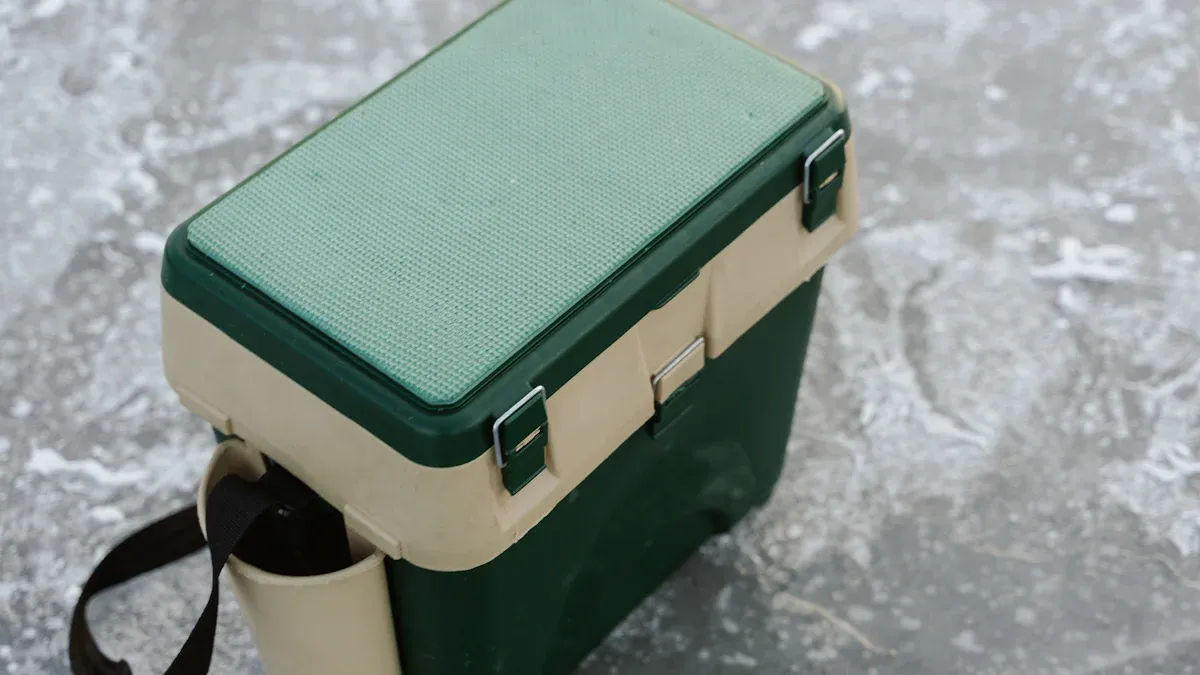
Pros of Hard-Sided Coolers
When you choose hard-sided coolers, you get classic durability and extended ice retention. KUER’s hard coolers use a robust construction with rotomolded technology. This process creates a one-piece, seamless shell that is leak-proof and impact-resistant. You can trust these coolers to handle rough outdoor conditions. The outer shell uses LLDPE, which resists UV rays and prevents damage from the sun. Inside, dense PU foam insulation keeps your food and drinks cold for more than five days. The inner layer uses food-grade PP or PE, so your ice chest stays safe and odor-free. Heavy-duty latches, stainless steel locks, and durable sealing gaskets add extra toughness. Sure grip rubber feet keep your cooler steady during transport. These features make high-quality hard coolers perfect for demanding adventures.
Tip: Hard-sided coolers from KUER offer excellent ice retention, so you can keep ice for up to five days, even in hot weather.
Cons of Hard-Sided Coolers
Hard-sided coolers can be heavy and bulky. You may find them harder to carry over long distances. Some models have tall designs, which means you need to pack carefully to reach items at the bottom. The price for hard coolers is often higher than soft-sided options. Despite these drawbacks, you get superior ice retention capabilities and classic durability.
Best Uses for Hard-Sided Coolers
You should use hard-sided coolers for activities that demand strong insulation and ruggedness. These coolers work best for:
- Camping trips
- Fishing adventures
- Days on the river
- Extended road trips
- Tailgating events
- Summer outdoor essentials
Hard-sided coolers keep your food and drinks cold for days. You can rely on their robust construction and ice retention capabilities for any outdoor adventure. If you need a hard plastic cooler that stands up to tough conditions, KUER’s ice chest models deliver reliable performance.
| Cooler Model | Insulation Thickness | Average Ice Retention Time | Key Factors Influencing Retention |
|---|---|---|---|
| Cubix 25 Quart Viva | 3 inches | Up to 5 days | Thick polyurethane foam insulation, gasket design, pre-chilling |
| YETI Tundra Coolers | Up to 3 inches | Several days (varies) | Polyurethane foam, freezer-style sealing gasket, pre-chilling |
Soft-Sided Coolers
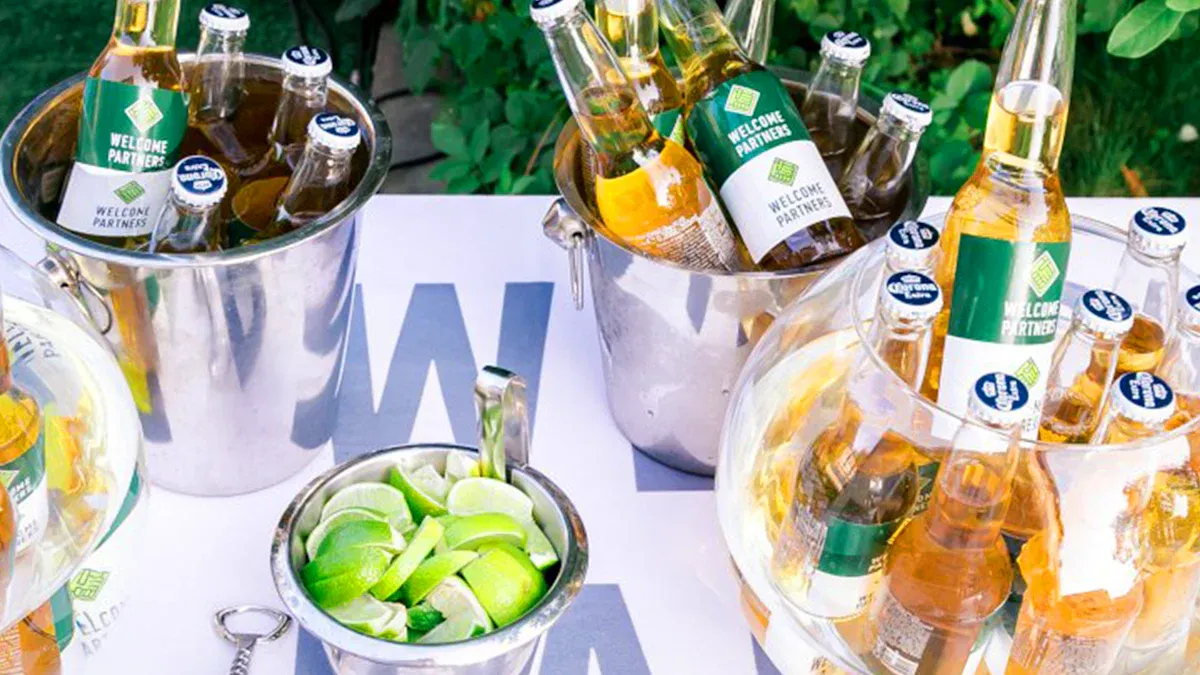
Pros of Soft-Sided Coolers
You will notice that soft-sided coolers offer outstanding portability and convenience. You can carry them easily because they weigh much less than hard-sided models. Many soft-side coolers feature padded shoulder straps or backpack-style designs, so you can keep your hands free while walking or hiking. You will find extra compartments and pockets for organizing utensils, snacks, or valuables. The ergonomic design reduces strain on your shoulders and back. Most soft-sided coolers use water-resistant materials and reinforced stitching, making them durable for outdoor use. You can fold or collapse these coolers for space-saving storage when you finish your trip. Cleaning is simple, thanks to wipeable surfaces and removable liners. KUER’s soft-side coolers combine these features with reliable insulation, keeping your drinks and food cool for hours.
- Lightweight and compact for easy transport
- Multiple carrying options: handles, straps, backpack style
- Extra pockets for organization
- Easy to clean and maintain
- Durable, water-resistant materials
- Versatile and compact for different activities
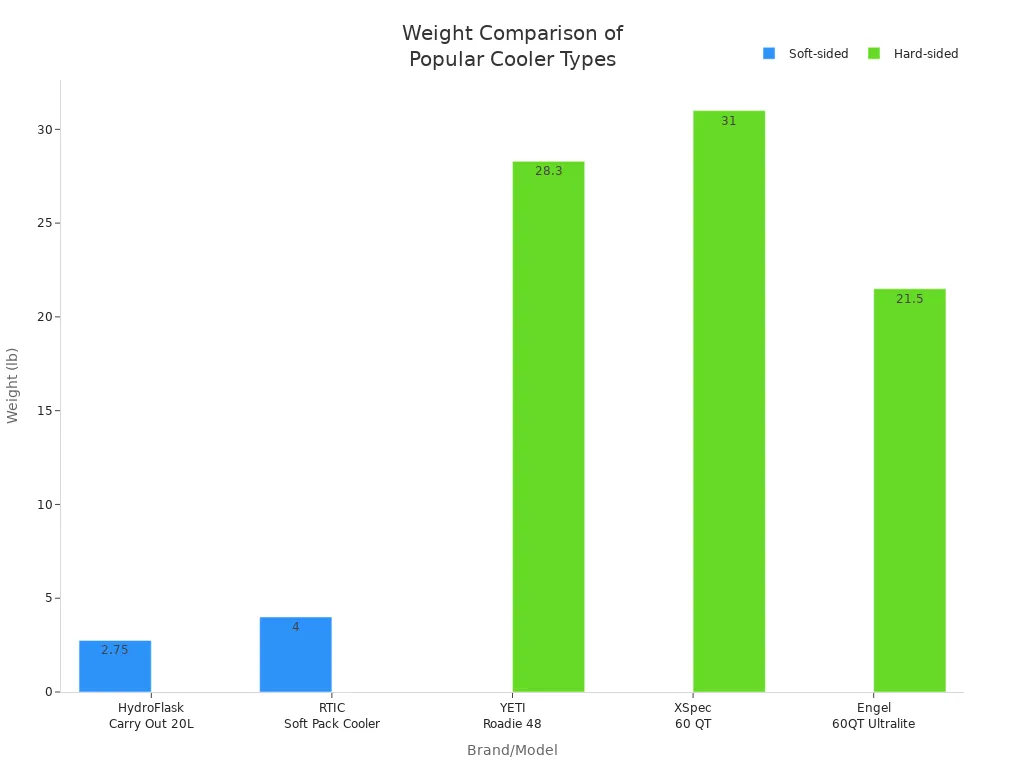
Cons of Soft-Sided Coolers
You may find that soft-sided coolers have smaller capacities than hard-sided models. Most soft-side coolers hold up to 20 quarts, which works best for short trips. The insulation in soft-sided coolers keeps items cold for several hours, but not for days. Some models use zippers that are not fully waterproof, so you should check for leak-proof designs. Durability depends on the quality of fabric and stitching. Soft-sided coolers are not bear-resistant and may not withstand rough handling as well as hard-sided coolers.
- Smaller size and capacity
- Shorter ice retention time
- Durability varies by material and construction
- Some zippers may not be fully waterproof
Best Uses for Soft-Sided Coolers
You should choose soft-sided coolers for activities that require easy carrying and quick access. These coolers work well for picnics in the park, day hikes, road trips, and beach outings. The lightweight and flexible design lets you store them in tight spaces or pack them away when not in use. Padded handles and backpack straps make transport comfortable. KUER’s soft-side coolers offer insulated storage for drinks and snacks, keeping them fresh during your adventure. You will appreciate their versatility for short outdoor excursions, travel, and everyday use.
- Picnics and family outings
- Day hikes and nature walks
- Road trips and travel
- Beach days and poolside fun
- Sporting events and tailgates
Comparison
Durability: Hard-Sided vs Soft-Sided Coolers
When you look at cooler durability, you see clear differences between hard-sided and soft-sided coolers. Hard-sided coolers use thick, rigid construction. This design resists impacts and stands up to rough outdoor use. You can drop or bump a hard cooler, and it will keep its shape. The rotomolded process, used by KUER, creates a seamless shell that prevents leaks and cracks. This makes hard-sided coolers ideal for camping, fishing, and hunting.
Soft-sided coolers focus on lightweight materials and flexible design. They use reinforced stitching and water-resistant fabrics. While these coolers handle gentle use well, they do not match the ruggedness of hard-sided models. You can carry a soft-sided cooler on hikes or picnics, but it may not withstand heavy impacts. If you need cooler durability for tough environments, hard-sided coolers offer the best protection.
Tip: Choose a hard-sided cooler for maximum durability and a soft-sided cooler for everyday convenience.
Ice Retention & Insulation
Insulation performance is one of the most important factors when choosing a cooler. Hard-sided coolers have thick walls and lids. This design provides superior insulation and extended ice retention. A high-quality hard-sided cooler, such as a 50-quart model, can keep ice frozen for up to ten days. You get reliable insulation for long trips and hot weather.
Soft-sided coolers use foam insulation in thinner walls. This design keeps items cold for several hours, making them perfect for short outings. High-quality soft-sided coolers with closed-cell insulation can retain ice for up to 40 hours. Lower quality models may lose ice in just 24 hours. You should choose a cooler based on how long you need to keep items cold.
| Cooler Type | Insulation Type | Insulation Thickness | Ice Retention Performance | Notes on Portability and Durability |
|---|---|---|---|---|
| Hard-sided coolers | Thick, rigid | Thick | Superior ice retention; ice lasts up to 10 days | Heavier, less portable |
| Soft-sided coolers (high-quality) | Closed-cell foam | Thick | Ice retained up to 40 hours | Lighter, more portable; may leak water |
| Soft-sided coolers (lower quality) | Open-cell foam | Thin | Ice melts after 24 hours | Very lightweight; less effective cold retention |
Note: For quick cooling efficiency, always pre-chill your cooler before packing.
Portability & Weight
Cooler weight and portability matter when you plan to move your cooler often. Hard-sided coolers are heavy. Their sturdy build and thick insulation add weight. You may need a vehicle to transport a large hard-sided cooler. Carrying one over long distances can be difficult.
Soft-sided coolers are lightweight and easy to carry. You can take them on hikes, bike rides, or to the gym. Many soft-side coolers have padded straps or backpack designs. This makes them perfect for activities where you need to walk or move quickly. If you want the best portability, soft-sided coolers are the top choice.
Capacity & Storage
Cooler size and storage capacity depend on your needs. Hard-sided coolers come in many sizes. You can find small personal models or large ice chests for group trips. These coolers work well for extended outings and storing lots of food and drinks. The rigid construction means they take up more space and do not compress.
Soft-sided coolers are designed for individual or small-group use. They have smaller capacities, which makes them ideal for day trips, picnics, or sporting events. You can fold or compress a soft-sided cooler for easy storage when not in use. If you need a cooler for a quick outing, soft-sided coolers offer the right balance of size and convenience.
- Hard-sided coolers: Wide range of sizes, large storage, best for long trips and groups.
- Soft-sided coolers: Compact, flexible, easy to store, best for short trips and fewer people.
Tip: Use a hard-sided cooler for base camp storage and a soft-sided cooler for day excursions.
Cost & Value
You should consider both price and value when choosing a cooler. Hard-sided coolers often cost more because of their durable construction and superior insulation. For example, a Titan by Arctic Zone hard-sided cooler ranges from $32.99 to $84.99, depending on size and features.
Soft-sided coolers usually have a lower price point. A Titan by Arctic Zone soft-sided cooler costs between $39.99 and $52.99. Premium brands like Polar Bear Coolers offer soft-sided models from $89.00 to $199.00. You get value from the right cooler by matching your needs to its features and price.
| Cooler Type | Brand | Price Range (USD) | Size/Capacity Details |
|---|---|---|---|
| Hard-sided | Titan by Arctic Zone | $32.99 – $84.99 | 9-can to 48-can; wheeled up to 60-can |
| Soft-sided | Titan by Arctic Zone | $39.99 – $52.99 | Backpack, tote, bucket tote styles |
| Soft-sided | Polar Bear Coolers | $89.00 – $199.00 | 12-pack, 24-pack, Topper 20 & 30 |
Features & Accessories
You will find different features and accessories in each cooler type. Hard-sided coolers often include wire baskets, dividers, cup holders, and reinforced corners. Many models have airtight seals and heavy-duty latches. These features help you organize your food and drinks and keep everything secure.
Soft-sided coolers focus on comfort and convenience. You get padded straps, extra pockets, and leak-resistant zippers. Some models have backpack straps or tote handles for easy carrying. The flexible construction allows you to fit the cooler in tight spaces or fold it for storage.
Note: KUER’s coolers combine advanced construction, reliable insulation, and practical features to meet your needs for any adventure.
Decision Guide
Choosing the right cooler means thinking about your activities, trip length, group size, storage space, and budget. Ask yourself these questions to match your needs with the best cooler features.
Activity Type
Think about what you plan to do. Outdoor experts say your activity shapes your cooler choice:
- For hiking, cycling, or sports, you need something light and easy to carry. Soft-sided coolers work well here because they are compact and portable.
- For camping, hunting, or fishing, you need a cooler that keeps ice for days and stands up to rough use. A hard-sided camping cooler or fishing cooler gives you the durability and insulation performance you need.
- For tailgating or car camping, wheeled coolers help move heavy loads.
Tip: Match your cooler to your main activity for the best efficiency and convenience.
Trip Length
Trip duration affects your choice. Use this table to decide:
| Cooler Type | Recommended Trip Duration | Advantages | Limitations |
|---|---|---|---|
| Soft-sided | Short trips, day outings | Lightweight, easy to store and carry | Ice lasts 1-2 days |
| Hard-sided | Multi-day camping, long outings | Superior insulation, keeps ice for days | Heavier, less portable |
Short trips need quick cooling and easy transport. Long trips need better insulation performance and storage.
Group Size
The number of people matters. For three people on a day trip, a 40-quart cooler is enough. For a weekend trip, choose a 50- to 60-quart cooler. Large groups or longer trips may need more than one cooler to keep things organized and easy to carry.
- Small groups: Soft-sided coolers or medium hard-sided coolers
- Large groups: Large hard-sided coolers or multiple coolers
Avoid coolers that are too big, as extra air space can reduce cooling efficiency.
Storage Space
Check your available storage. Hard-sided coolers offer more space but take up more room. Soft-sided coolers fold or collapse, making them easy to store in tight spaces. If you have limited storage at home or in your vehicle, a soft-sided cooler may fit better.
Budget
Budget plays a big role. Hard-sided coolers cost more because of their advanced insulation and durability. They are a good investment for frequent or long trips. Soft-sided coolers are more affordable and work well for short-term use.
| Cooler Type | Budget Impact | Key Points |
|---|---|---|
| Hard-sided | Higher upfront cost | Best for long trips and heavy use |
| Soft-sided | More affordable | Ideal for short-term, budget-friendly activities |
Remember: Choose a cooler that fits your needs and your budget for the best value.
You now know the key differences between hard plastic and soft-sided coolers:
- Hard plastic coolers give you stronger protection and longer ice retention. They work best for camping, fishing, and long outdoor trips.
- Soft-sided coolers are lighter and easier to carry. You will find them ideal for short outings and quick travel.
KUER’s coolers earn praise for durability, leak-proof design, and easy cleaning. Choose the cooler that matches your activity, storage needs, and lifestyle. 🧊 Your adventure deserves the right cooler—pick the one that fits you best!
FAQ
What makes a camping cooler different from a regular cooler?
A camping cooler uses robust construction and reliable insulation. You get excellent ice retention for several days. This design helps you keep food and drinks safe during long outdoor trips.
How do I choose the right cooler size for my trip?
You should match cooler size to your group and trip length. For a day trip, a small ice chest works well. For a weekend with friends, pick a larger model. Always consider cooler weight for easy transport.
Why is insulation performance important in a fishing cooler?
Insulation performance keeps your catch fresh. A fishing cooler with extended ice retention prevents spoilage. You can trust high-quality hard coolers to maintain low temperatures for hours on the water.
What features help with quick cooling efficiency?
Pre-chill your cooler before use. Use enough ice and keep the lid closed. These steps improve quick cooling efficiency. Some coolers have thick insulated walls for better results.
Are soft-side coolers versatile and compact for travel?
Yes, soft-side coolers are versatile and compact. You can fold them for storage. Their portability makes them perfect for road trips, picnics, and daily use.

